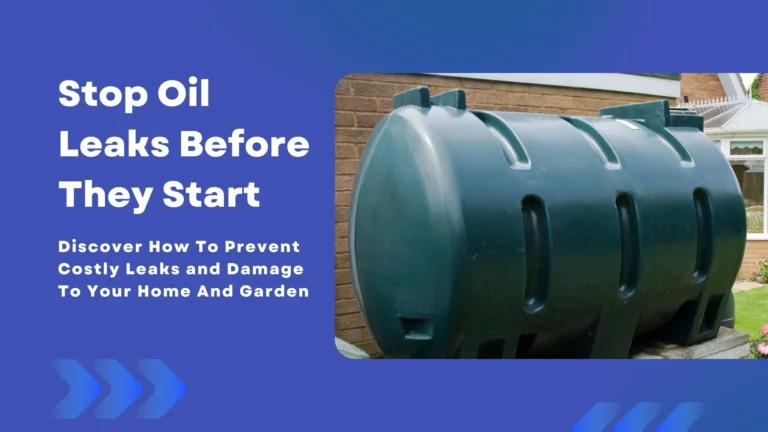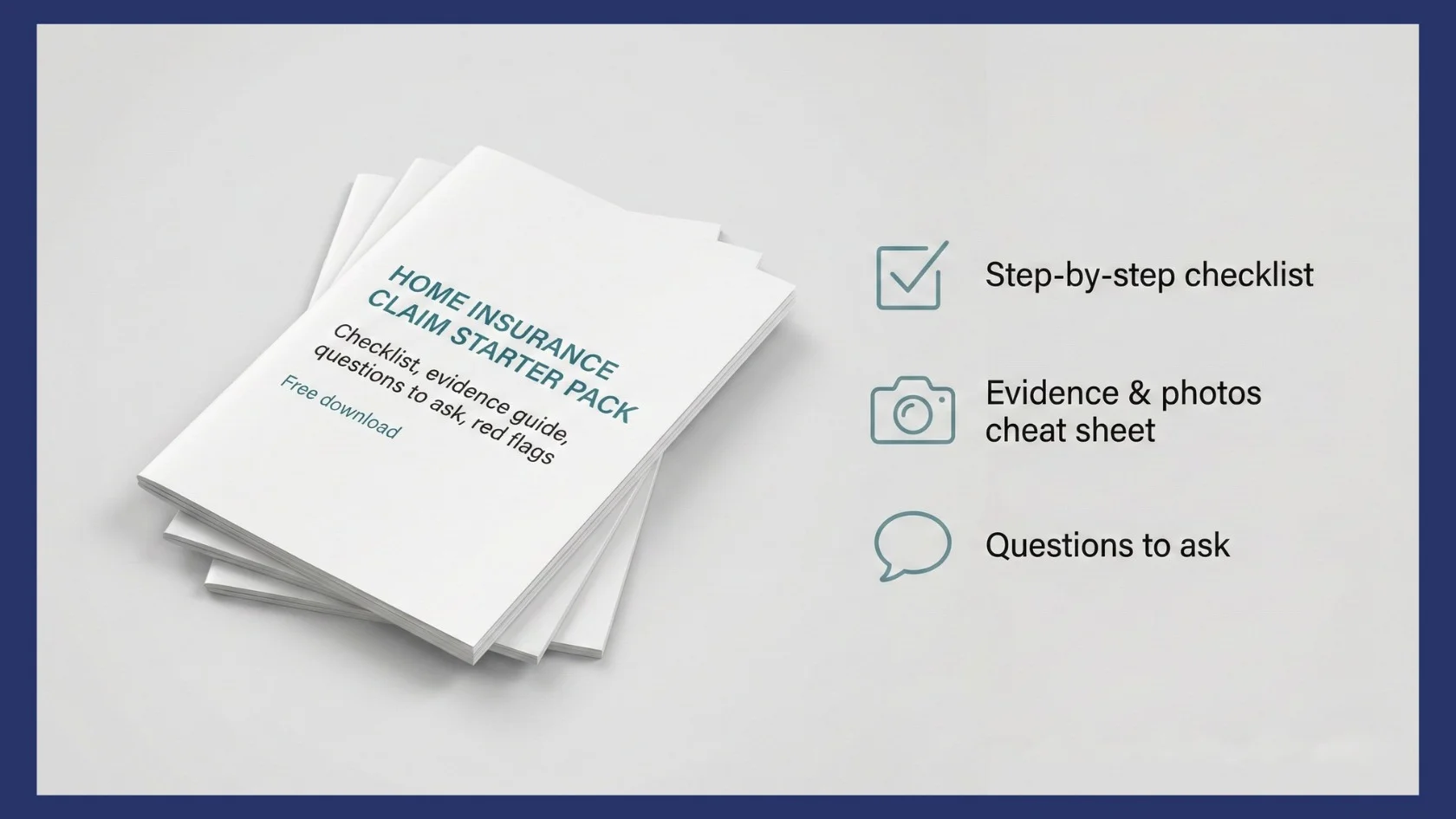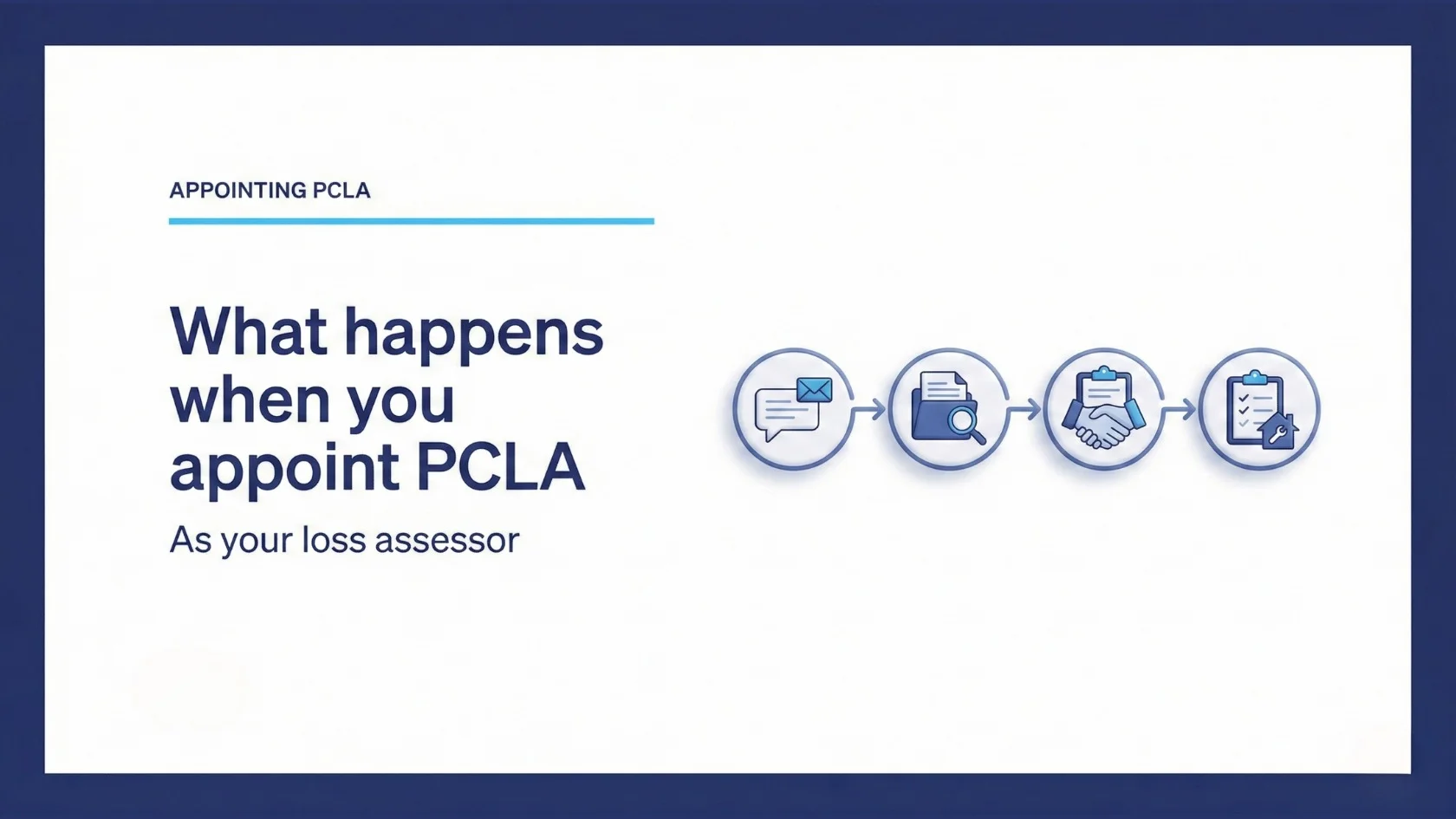An oil tank leak can lead to hefty repair bills and environmental damage, making prevention crucial for homeowners. By taking proactive measures to protect your oil tank, you can avoid costly leaks and ensure the safety of your property.
Domestic oil tanks are a common feature across Northern Ireland, particularly in rural homes. While they provide an efficient and reliable heating source, they also come with risks that many homeowners might not fully appreciate until it is too late.
An oil leak can cause significant damage to your property and the environment, and the financial consequences can be severe. At Property Claims Loss Assessors (PCLA), we have extensive experience helping homeowners navigate such situations, ensuring they receive the full support and insurance cover they are entitled to.
In this article, we’ll explore practical steps you can take to prevent oil leaks and share real-life case studies that highlight just how critical it is to act quickly when things go wrong. We’ll also provide guidance on what to do if you find yourself dealing with an oil leak, making a stressful situation a little easier to manage.
Understanding the Risks of Oil Leaks
An oil leak might start small, but its impact can quickly escalate. Oil can seep into the ground, contaminating the soil and even the water supply. If the leak travels under your home, it can damage the foundations and result in hazardous indoor air quality. In addition to the physical damage, cleaning up an oil spill is costly and time-consuming, requiring specialised contractors and often significant repairs.
The good news is that many oil leaks are preventable. Regular maintenance, careful monitoring, and timely interventions can make all the difference.
Practical Steps to Protect Your Oil Tank
1. Regular Inspections
Routine inspections are essential for identifying issues before they turn into leaks. Check your oil tank at least twice a year for any signs of wear, corrosion, or damage. Pay particular attention to:
- Rust or cracks on metal tanks
- Bulging or splits in plastic tanks
- Signs of oil staining on the ground around the tank
- Fittings, valves, and pipes, which are common areas for leaks
If you’re unsure, consider hiring a professional to carry out an inspection.
2. Maintain Safe Tank Placement
The location of your oil tank plays a crucial role in minimising the risk of leaks. Ensure your tank is installed on a solid, level base and is positioned away from areas prone to flooding, falling debris, or vehicle collisions. An appropriately sheltered and secure area will add years to the life of your tank.
3. Monitor Oil Levels
Keep an eye on your oil levels regularly. A sudden drop in oil levels can indicate a leak or a theft. Investing in an oil tank monitoring system or smart sensor can provide alerts if there is unexpected usage or a rapid drop in levels.
4. Replace Old Tanks
Oil tanks, like any other piece of equipment, have a limited lifespan. Plastic tanks typically last around 10-15 years, while metal tanks can last up to 20 years with proper care. If your tank is approaching this age, it’s worth replacing it to avoid costly leaks down the line.
5. Consider Secondary Containment
A bunded tank (a tank within a tank) offers extra protection by containing any oil that escapes from the inner tank. Bunded tanks are now a legal requirement for certain situations, such as tanks near water sources, and they provide peace of mind for homeowners.
A Major Oil Leak in Coleraine: How PCLA Helped
One of the most significant cases we dealt with involved a property in Coleraine where 1,000 litres of oil escaped from a domestic oil tank. The homeowner had recently filled the tank and only noticed something was wrong when they began to detect a very strong smell of oil within their house several weeks later.
The homeowner contacted us at PCLA, and we immediately took action to investigate. An oil spill technician was dispatched to the property to take air samples, and the readings confirmed the worst: hydrocarbons were present throughout the property. A more intrusive borehole survey was undertaken to determine the full extent of the contamination, which revealed that the oil had travelled beneath the entire house.
How We Helped
We reported the matter to the homeowner’s insurance company and worked closely with their appointed loss adjuster. We submitted detailed reports outlining the necessary works to resolve the contamination, which included a process known as ‘dig and dump’. In this method, all contaminated soil was dug out and removed by licensed contractors, with the area being thoroughly treated to eliminate any remaining oil.
This was no small task. The entire property had to be excavated to a depth of two metres below ground level. Once the treatment was complete, we ensured the property was fully reinstated to a high standard, submitting costs for all necessary repairs and finishing works. Thanks to our involvement, the homeowner’s insurance covered the costs in full, and their property was returned to a better condition than before the leak.
While this case highlights the extent of the damage that can result from an oil leak, it also shows how swift action and professional support can make all the difference.
What to Do If You Suspect an Oil Leak
If you suspect your oil tank might be leaking, acting quickly is crucial. Here’s what to do:
- Stop Using the Oil Tank: Shut off the supply to prevent further leakage.
- Contact a Professional: Call an oil spill technician or specialist to assess the situation and take initial readings.
- Notify Your Insurance Company: Inform your insurer as soon as possible to ensure the claim process begins promptly.
- Call for Assistance: Professional loss assessors, like PCLA, can manage the claims process, liaise with insurers, and ensure you get the cover you are entitled to.
- Protect Your Property: Follow any advice from the technician to contain the leak, such as placing absorbent materials around the tank.
How PCLA Supports Homeowners
At PCLA, we specialise in helping homeowners through the complex process of making insurance claims for oil leaks and other types of property damage. As loss assessors, we act on your behalf, working directly with insurers to ensure you receive your full entitlement under the terms of your policy.
We understand that dealing with an oil leak can be overwhelming, particularly when it involves extensive repairs and disruption to your home. Our team of qualified professionals, including building surveyors and insurance experts, has over 30 years of experience in managing these situations. We coordinate all aspects of the claim, from initial assessment and reporting to managing contractors and ensuring your property is fully reinstated.
Our goal is simple: to make the process as smooth and stress-free as possible for you.
Final Thoughts: Prevention Is Key
Oil leaks are more common than many people realise, but they are often preventable with the right approach. By taking proactive steps to inspect, maintain, and monitor your oil tank, you can avoid the significant financial and emotional toll of a leak.
However, if the worst does happen, it’s important to act quickly and seek professional assistance. At PCLA, we’ve seen first-hand the impact that oil leaks can have, and we’re here to help homeowners in Northern Ireland navigate the challenges and come out the other side with their homes fully restored.
Need Help with an Oil Leak Claim?
If you’re dealing with an oil leak or have concerns about your home insurance cover, don’t hesitate to get in touch. Contact PCLA today for expert advice and support in managing your insurance claim. We’re here to ensure you get the full support you need to protect your home and finances.
For more information on oil tank safety and environmental regulations, you can visit NI Direct or check out resources from the Northern Ireland Environment Agency (NIEA).
Protect your home today. Don’t wait for a costly leak to catch you off guard.



